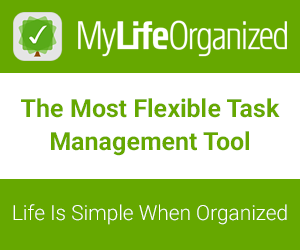Are you dreaming of meeting-free days and sunny beaches?
No matter how you see your retirement going, it’s the end goal that keeps many people going through years of work.
But retiring too soon without the proper preparation for retirement can leave you in a financially or emotionally challenging situation.
Working through the important details before you let your boss know you’re done helps you plan for those potential retirement difficulties.
Keep reading to learn the considerations before retiring.
- Retirement Age
Statistics show that 63.1% of people retire between the ages of 57 and 66. Deciding when to retire is partially personal preference and partially dependent on your financial situation.
You can retire at any time, but your retirement benefits vary depending on your age.
If you retire before you reach certain milestone ages, you might face penalties for taking money from your retirement.
If you wait until you’re 55, you might be able take 401(k) distributions without early withdrawal penalties. By 59 1/2, you don’t have to worry about the penalty.
At 62, you can start receiving Social Security benefits. But the amount you receive will be lower than if you wait longer.
That lower amount is what you’ll receive for the rest of your life. It won’t increase as you get older.
Plan ahead of time what age you want to retire, considering the implications on your retirement benefits.
- Retirement Savings
Check on your retirement savings and benefits from all sources to ensure you have enough to make ends meet. There’s no magic amount you need. It depends largely on your expenses and preferred lifestyle.
Talk to a financial advisor is a good option if you don’t know how much you need to retire. If you’re short on your retirement savings goals, focus on putting away as much as possible until you retire.
- New Budget
Your budget will likely look different when you retire. You can eliminate your work-related expenses, including everyday commutes, work clothing, and work lunches.
You’ll see increases in some budget areas, including your grocery bill. If you take up new interests, you might have costs associated with them. You might buy supplies for a hobby or spend more on travel.
Look at your current budget, and determine how it will change when you retire. Calculate how much you need each month to cover the budget. This is a good way to determine if your retirement benefits are enough to cover your expenses.
- Debt
Your current debt can be a factor in your retirement. Your retirement income will likely be lower than your current income. Having lots of debt can strain that income.
Create a plan for paying off as much of your current debt as possible before you retire. You might consider refinancing the debt if possible to get a lower interest rate and pay it off faster.
You’ll feel more secure if you enter retirement with as little debt as possible. It gives you more of a cushion in case you face an unexpected financial situation once you retire.
- Health Insurance
When you leave your job, your current health insurance will likely end. You’ll need a plan for replacing that insurance to continue having access to affordable health care.
As you age, your medical needs might increase, so you want to have coverage to avoid major medical debt.
You can purchase your own health insurance policy. Many retirees opt for Medicare. You’re eligible for this option when you turn 65.
- Living Arrangements
Are you planning to continue living in your current home, or do you have plans to move in retirement?
Many people move to warmer climates when they retire, such as Australia, home to pleasant retirements villages such as Taigum Village. Others move to areas that support a hobby, such as golf course communities.
If you plan to move, consider your moving expenses. If you own your current home outright, you might be able to sell it and buy a new home without a mortgage.
- Working in Retirement
You might not think of having a job in retirement, but many retirees work part-time for additional income. If you think your retirement benefits won’t be enough to cover your expenses, working part-time could be a solution.
It allows you to cut back on your hours to give you more free time. Yet you still have the extra income you need for your bills.
You’ll need to check on your retirement benefits to learn the regulations for working. If you work too many hours, it could affect your retirement benefits. Ensure you fully understand the implications before you decide to work.
Instead of working for another company, some retirees start a business or do freelance work in retirement. This allows you to use your expertise but have more flexibility compared to a regular job with another company.
In addition to the income, working part-time is fulfilling for some retirees who still want to have regular interactions with other people.
- Hobbies
It can be a shock to go from working full time to being retired. Suddenly, your days are free with nowhere you’re required to be.
The prospect is exciting after you’ve worked for decades. But it can also be intimidating once you retire.
Having hobbies, travel plans, and other goals when you retire helps you maintain a fulfilling life. It can also help you meet other retirees and get the much-needed socialization.
Create a retirement bucket list to start planning for the things you want to do. If you’re married, consider a joint bucket list and individual lists. This gives you shared time together and individual time.
- Estate Plan
Before you retire, it’s a good idea to look over your will and other estate plans. Make sure the things you put in your will are still valid.
If you don’t have power of attorney and medical directives in writing, take care of those issues now. Taking care of these issues before you retire gives you peace of mind.
Enjoy Preparation for Retirement
Your preparation for retirement makes the transition easier. It ensures you’re covered financially and you’re prepared emotionally to leave the working world behind.
Check out our archives for more useful information.




Like this article? Share with your friends!